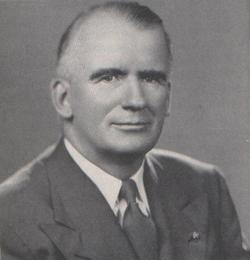A Quote by Henry Ford
Related Quotes
The most common way customer financing is done is you sell the customer on the product before you've built it or before you've finished it. The customer puts up the money to build the product or finish the product and becomes your first customer. Usually the customer simply wants the product and nothing more.
I have had the view that cutting wages is not the path to prosperity, and one of the great myths propagated about my attitude to industrial relations is that I believe in lower wages. I've never believed in lower wages. Never. Never believed in lower wages, I've never believed in lower wages as an economic instrument.
The successful producer of an article sells it for more than it cost him to make, and that's his profit. But the customer buys it only because it is worth more to him than he pays for it, and that's his profit. No one can long make a profit producing anything unless the customer makes a profit using it.


































